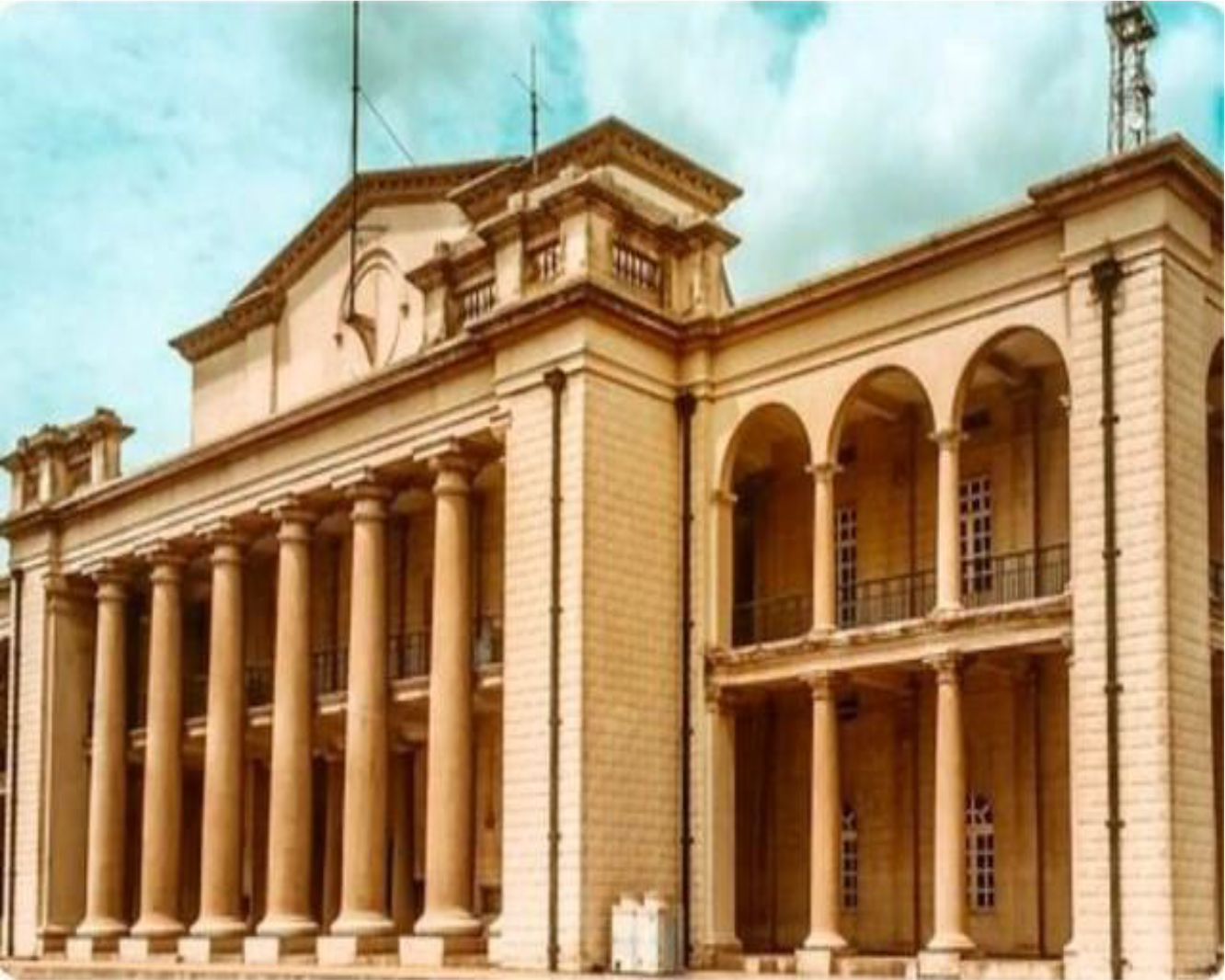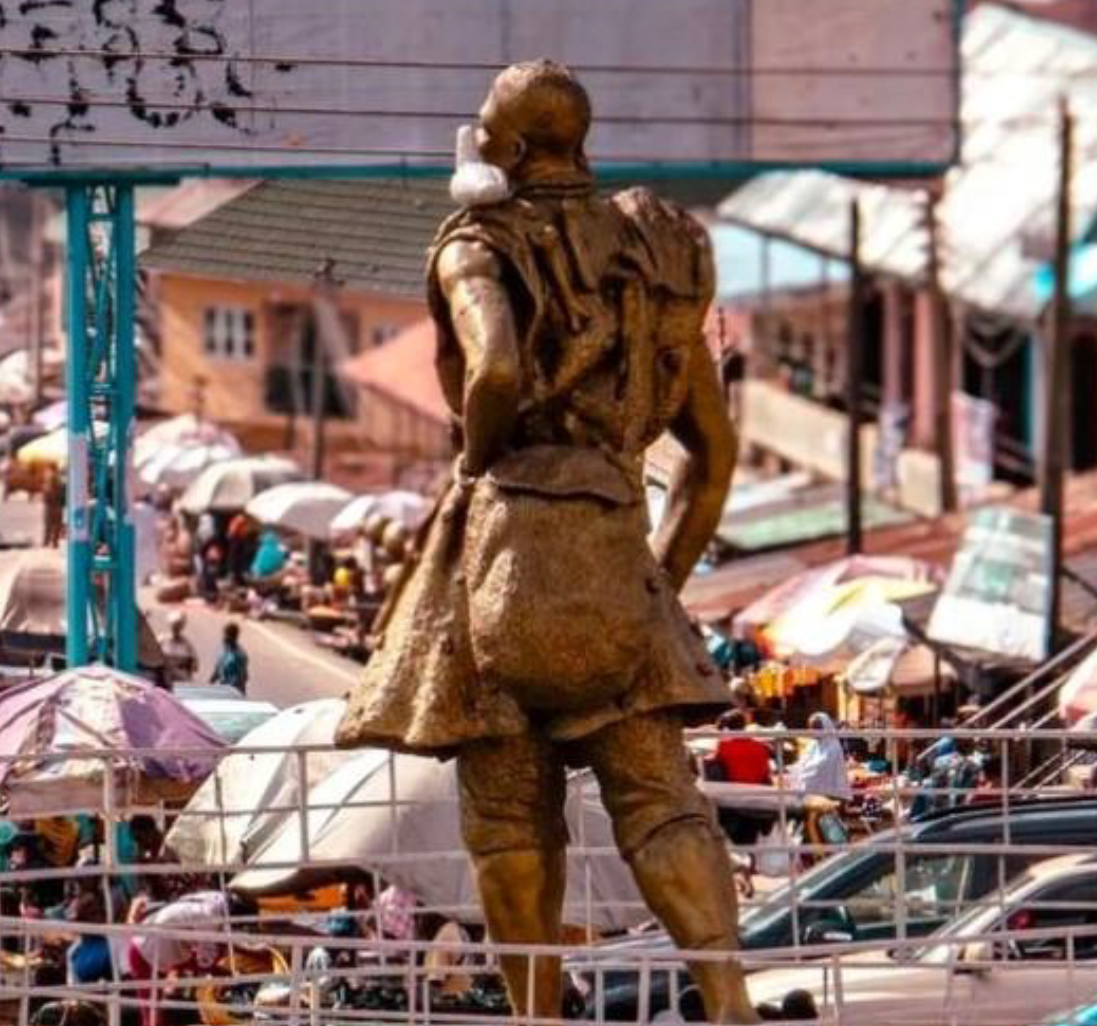MAPO HALL
Ibadan City Hall
Mapo Hall, located in Ibadan, Oyo State, Nigeria, is one of the city's most iconic landmarks and with a rich historical and cultural significance. The name "MAPO" was derived from the Yoruba word which signifies 'top of the hill’ reflecting its strategic location atop a hill in the heart of Ibadan. The building sits amid two major markets, namely Oja Oba and Beere in Ibadan. The building is right within a flurry of activities and the brimming population of the area with a statue of an ancient Ibadan warrior "The BALOGUN Oderinlo" situated at the roundabout. The hall, which serves as both a civic centre and a symbol of Ibadan's heritage, was built during the British colonial era. Conceived by a British architect; W. F. H. Chubb who infused elements of traditional African aesthetics as well as European architectural practices. The architectural design of Mapo Hall is a blend of indigenous Yoruba styles and colonial influences. The construction took four years between 1925 and 1929 with its foundation stone laid by the then resident of Oyo province, Captain Ross. The construction cost about €24,000; equivalent to a whopping El.9 million in today's value. The unique architectural combination gives Mapo Hall its distinct look which has made it an enduring symbol of the city. Over the years it has played a central role in the civic and political life of Ibadan.

Although Mapo Hall was initially meant to house the local government offices, it has also been the venue for major political and social gatherings during the colonial and post colonial periods. It has hosted various events, including cultural festivals, public speeches, and important ceremonies over the years. The hall's role as a focal point for governance has continued even after Nigeria's independence in 1960. As Ibadan grew in prominence within the Western Region throughout the years, Mapo Hall has witnessed key political events and speeches many of which have shaped the trajectory of local governance in the region.

Beyond its political significance, Mapo Hall is a center for the preservation of Ibadan's cultural heritage as the building is closely associated with the rich traditions of the Yoruba people. It also serves as a reminder of the city's historical importance for being one of the largest and most influential urban centers in Nigeria before and after colonial rule. Mapo Hall is a popular tourist destination, attracting visitors who come to admire its architectural beauty and learn about the history of Ibadan. It continues to serve as a hub for local government activities and events. In 2011, the building underwent extensive renovations to preserve its structure and improve its facilities. This ensures that the hall retains its historical essence while accommodating the demands of modern usage. Mapo Hall remains not only an architectural marvel but also a cultural and political emblem of Ibadan. It embodies the city's legacy and its continued evolution as a significant part of Nigeria's history.